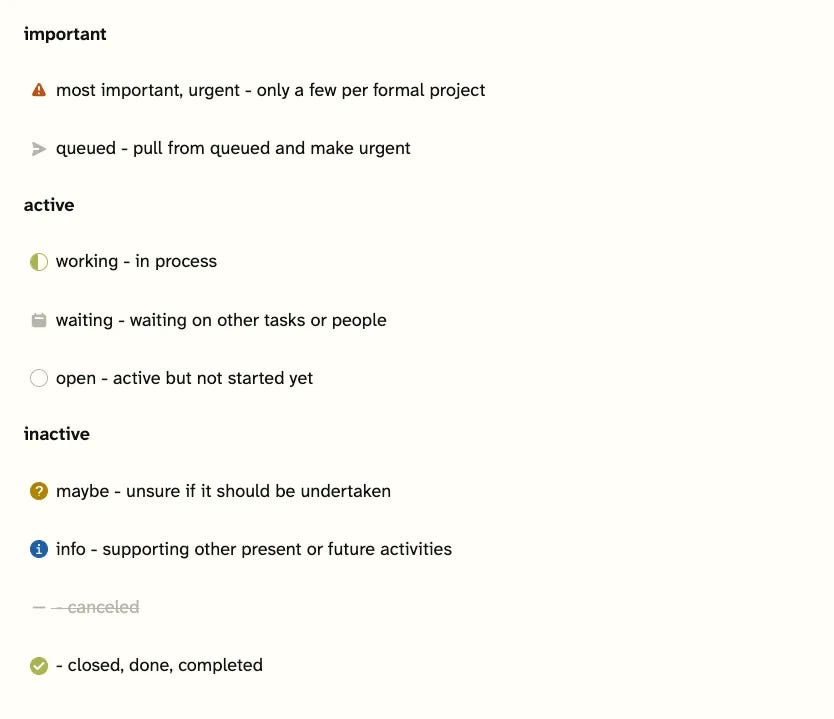Sheer Insanity
Hannah Arendt | Brain Drain | Values | Go East, Young Man | Elsewhere
Never has our future been more unpredictable, never have we depended so much on political forces that cannot be trusted to follow the rules of common sense and self-interest — forces that look like sheer insanity, if judged by the standards of other centuries.
| Hannah Arendt
…
I have nothing to add.
I’m a bit out of focus as a close family member is in the hospital, although now recuperating, and they should be out in a few days.
This is a somewhat abbreviated and under-analyzed collation of bits and pieces.
Brain Drain
via Sam Dodini
What happens when you take a bunch of human capital out of a local economy? Is brain drain a real thing? And what are the consequences? In a new paper, we shed light on this in the context of highly developed economies: Sweden and Norway.
What happens to a country where the brightest in all disciplines decide to emigrate?
Values
Colin Newlyn shared a ‘values’ statement unearthed by Sharon O’Dea on LinkedIn (a place I seldom visit).
O’Dea observes:
More red flags than a bullfighter's laundry basket in this one.
I think she’s a bit too kind. Sounds like a psychic prison to me.
The comment thread is fun to read. Newlyn points out, ‘That is pretty Amazon policy, I am told…’. If so, yikes.
Go East, Young Man
A serious el switcheroo on the old Horace Greeley axiom since India Is on a Hiring Binge That Trump’s Tariffs Can’t Stop. The subtitle of this NY Times article (via archive.is) reads ‘An abundance of motivated young professionals is luring American businesses to base their global operations in Indian cities’.
Alex Travelli and Hari Kumar write about huge multinationals — many that we might think of as US companies, like Google, Qualcomm, Nvidia, Visa, Samsung and Amazon — are growing their operations in India, even while the US government is working hard to keep out Indian immigrants:
Twenty years ago, many Americans feared that the outsourcing of office jobs to lower-wage economies like India would mean fewer jobs in the United States. Many kinds of jobs have moved overseas since then, and many of those have since been automated. But the American economy needs more skilled workers.
Now many American companies are finding those workers in India. As of 2024, there were about 1,800 offshore corporate offices in India, owned by hundreds of foreign-based multinational companies — most of them American. There are 1.9 million people in India working for foreign companies, with 600,000 to 900,000 more expected to join them by 2030.
So, instead of bringing Indians to the US, companies are moving the jobs — and not just call centers and other relatively low-level jobs, but jobs like engineering, finance, and software development — to India, where well-trained workers are available and lower-cost:
American companies are assembling their work forces in India mainly because it has become difficult to find the right kind of workers in the United States. Studies find that a third of all new engineering jobs go unfilled, while nearly 1.2 million Indians graduate with engineering degrees every year. Lower-wage American workers, who lost jobs as manufacturing work shifted to Asia, have been stranded without retraining.
Deborah Kops, the managing principal of Sourcing Change, has been working on this kind of business, especially in India, since the early 1990s.
“We’ve got an inexorable trend right now, where enterprises understand that you can globalize the work,” Ms. Kops said. She has tried setting up global centers within the United States but says that “we just don’t have the education engine” to staff them.
“Can you get 5,000 folks who know how to do this kind of work? You can’t,” she said. “But you can do it in India, and you can do it in other places in the world.”
We broke the pipeline that created the engineers domestically; we are now blocking the pipeline that recruited immigrants with the skills needed from foreign countries. What is the result? Companies are hiring those same people but in India and other countries, not importing them.
This is another cycle of what the US did in manufacturing, as we exported skilled manufacturing jobs to China, South Korea, Japan, and Taiwan and those economies boomed while the Rust Belt… well… rusted.
At what point will Americans be applying for visas to work in India for global corporations who have moved their operations there since the US labor force is too expensive or lacks critical skills? Will we see Americans going to college there, to get their training at one tenth of the cost?
Elsewhere
Portfolio
Over at workings.co, the most recent installment in the Portfolio series (a comprehensive system for notetaking in Obsidian) is up: Portfolio: Tasks and Simple Projects.





I hope your family member is all better now?